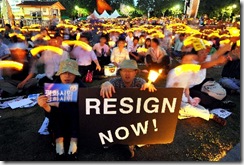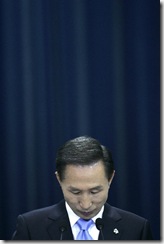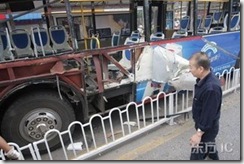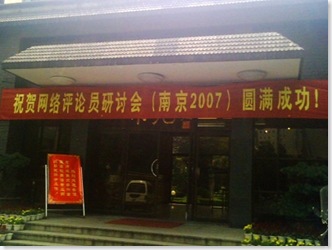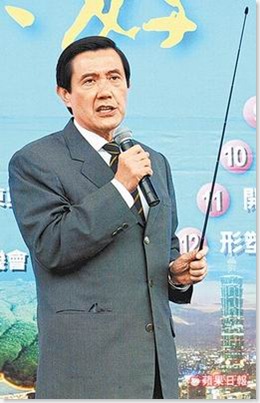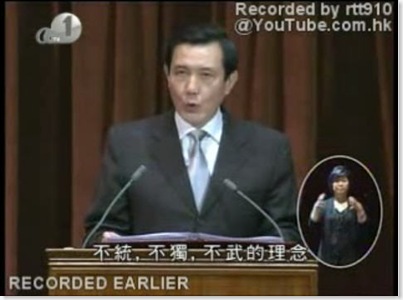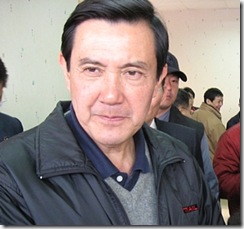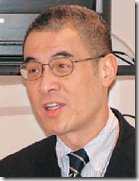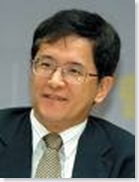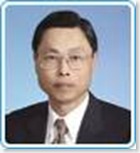By some estimates, these commentary teams now comprise as many as 280,000 members nationwide, and they show just how serious China’s leaders are about the political challenges posed by the Web. More importantly, they offer tangible clues about China’s next generation of information controls—what President Hu Jintao last month called “a new pattern of public-opinion guidance.”
It was around 2005 that party leaders started getting more creative about how to influence public opinion on the Internet. The problem was that China’s traditional propaganda apparatus was geared toward suppression of news and information. This or that story, Web site or keyword could be banned, blocked or filtered. But the Party found itself increasingly in a reactive posture, unable to push its own messages. This problem was compounded by more than a decade of commercial media reforms, which had driven a gap of credibility and influence between commercial Web sites and metropolitan media on the one hand, and old party mouthpieces on the other.
In March 2005, a bold new tactic emerged in the wake of a nationwide purge by the Ministry of Education of college bulletin-board systems. As Nanjing University, one of the country’s leading academic institutions, readied itself for the launch of a new campus forum after the forced closure of its popular “Little Lily” BBS, school officials recruited a team of zealous students to work part time as “Web commentators.” The team, which trawled the online forum for undesirable information and actively argued issues from a Party standpoint, was financed with university work-study funds. In the months that followed, party leaders across Jiangsu Province began recruiting their own teams of Web commentators. Rumors traveled quickly across the Internet that these Party-backed monitors received 50 mao, or roughly seven cents, for each positive post they made. The term Fifty Cent Party, or wumaodang, was born.
The push to outsource Web controls to these teams of pro-government stringers went national on Jan. 23, 2007, as President Hu urged party leaders to “assert supremacy over online public opinion, raise the level and study the art of online guidance, and actively use new technologies to increase the strength of positive propaganda.” Mr. Hu stressed that the Party needed to “use” the Internet as well as control it.
One aspect of this point was brought home immediately, as a government order forced private Web sites, including several run by Nasdaq-listed firms, to splash news of Mr. Hu’s Internet speech on their sites for a week. Soon after that speech, the General Offices of the cpc and the State Council issued a document calling for the selection of “comrades of good ideological and political character, high capability and familiarity with the Internet to form teams of Web commentators ... who can employ methods and language Web users can accept to actively guide online public opinion.”
By the middle of 2007, schools and party organizations across the country were reporting promising results from their teams of Web commentators. Shanxi Normal University’s 12-member “red vanguard” team made regular reports to local Party officials. One report boasted that team members had managed to neutralize an emerging BBS debate about whether students should receive junior college diplomas rather than vocational certificates, the former being much more valuable in China’s competitive job market. “A question came up among students about what kind of diplomas they would receive upon graduation,” the university report read. “A number of vanguards quickly discovered the postings and worked together to enforce guidance with good results.”
China’s Culture Ministry now regularly holds training sessions for Web commentators, who are required to pass an exam before being issued with job certification. A Chinese investigative report for an influential commercial magazine, suppressed by authorities late last year but obtained by this writer, describes in some detail a September 2007 training session held at the Central Academy of Administration in Beijing, at which talks covered such topics as “Guidance of Public Opinion Problems on the Internet” and “Crisis Management for Web Communications.”
In a strong indication of just how large the Internet now looms in the Party’s daily business, the report quotes Guan Jianwen, the vice president of People’s Daily Online, as saying during the training session: “In China, numerous secret internal reports are sent up to the Central Party Committee through the system each year. Of those few hundred given priority and action by top leaders, two-thirds are now from the Internet Office [of the State Council Information Office].”
The CCP’s growing concern about the Internet is based partly on the recognition of the Web’s real power. Even with the limitations imposed by traditional and technical systems of censorship—the best example of the latter being the so-called “Great Firewall”—the Internet has given ordinary Chinese a powerful interactive tool that can be used to share viewpoints and information, and even to organize.
But the intensified push to control the Internet, of which China’s Web commentators are a critical part, is also based on a strongly held belief among Party leaders that China, which is to say the CCP, is engaged in a global war for public opinion. In Gongjian, a book released earlier this year that some regard as President Hu’s political blueprint, two influential Party theorists wrote in somewhat alarmist terms of the history of “color revolutions” in Eastern Europe and Central Asia. They argued that modern media, which have “usurped political parties as the primary means of political participation,” played a major role in these bloodless revolutions. “The influence of the ruling party faces new challenges,” they wrote. “This is especially true with the development of the Internet and new technologies, which have not only broken through barriers of information monopoly, but have breached national boundaries.”
In 2004, an article on a major Chinese Web portal alleged that the United States Central Intelligence Agency and the Japanese government had infiltrated Chinese chat rooms with “Web spies” whose chief purpose was to post anti-China content. The allegations were never substantiated, but they are now a permanent fixture of China’s Internet culture, where Web spies, or wangte, are imagined to be facing off against the Fifty Cent Party.
Whatever the case, there is a very real conviction among party leaders that China is defending itself against hostile “external forces” and that the domestic Internet is a critical battleground. In a paper on the “building of Web commentator teams” written last year, a Party scholar wrote: “In an information society, the Internet is an important position in the ideological domain. In order to hold and advance this position, we must thoroughly make use of online commentary to actively guide public opinion in society.”
Mr. Hu’s policy of both controlling and using the Internet, which the authors of Gongjian emphasize as the path forward, is the Party’s war plan. Chinese Web sites are already feeling intensified pressure on both counts. “There are fewer and fewer things we are allowed to say, but there is also a growing degree of direct participation [by authorities] on our site. There are now a huge number of Fifty Cent Party members spreading messages on our site,” says an insider at one mainland Web site.
According to this source, Web commentators were a decisive factor in creating a major incident over remarks by CNN’s Jack Cafferty, who said during an April program that Chinese were “goons and thugs.” “Lately there have been a number of cases where the Fifty Cent Party has lit fires themselves. One of the most obvious was over CNN’s Jack Cafferty. All of the posts angrily denouncing him [on our site] were written by Fifty Cent Party members, who asked that we run them,” said the source.
“Priority” Web sites in China are under an order from the Information Office requiring that they have their own in-house teams of government-trained Web commentators. That means that many members of the Fifty Cent Party are now working from the inside, trained and backed by the Information Office with funding from commercial sites. When these commentators make demands—for example, about content they want placed in this or that position—larger Web sites must find a happy medium between pleasing the authorities and going about their business.
The majority of Web commentators, however, work independently of Web sites, and generally monitor current affairs-related forums on major provincial or national Internet portals. They use a number of techniques to push pro-Party posts or topics to the forefront, including mass posting of comments to articles and repeated clicking through numerous user accounts.
“The goal of the government is to crank up the ‘noise’ and drown out progressive and diverse voices on China’s Internet,” says Isaac Mao, a Chinese Web entrepreneur and expert on social media. “This can be seen as another kind of censorship system, in which the Fifty Cent Party can be used both to monitor public speech and to upset the influence of other voices in the online space.”
Some analysts, however, say the emergence of China’s Web commentators suggest a weakening of the Party’s ideological controls. “If you look at it from another perspective, the Fifty Cent Party may not be so terrifying,” says Li Yonggang, assistant director of the Universities Service Centre for China Studies at the Chinese University of Hong Kong. “Historically speaking, the greatest strength of the CCP has been in carrying out ideological work among the people. Now, however, the notion of ‘doing ideological work’ has lost its luster. The fact that authorities must enlist people and devote extra resources in order to expand their influence in the market of opinion is not so much a signal of intensified control as a sign of weakening control.”
Whatever the net results for the Party, the rapid national deployment of the Fifty Cent Party signals a shift in the way party leaders approach information controls in China. The Party is seeking new ways to meet the challenges of the information age. And this is ultimately about more than just the Internet. President Hu’s June 20 speech, the first since he came to office in 2002 to lay out comprehensively his views on the news media, offered a bold new vision of China’s propaganda regime. Mr. Hu reiterated former President Jiang Zemin’s concept of “guidance of public opinion,” the idea, emerging in the aftermath of the Tiananmen Massacre, that the Party can maintain order by controlling news coverage. But he also talked about ushering in a “new pattern of public-opinion guidance.”
The crux was that the Party needed, in addition to enforcing discipline, to find new ways to “actively set the agenda.” Mr. Hu spoke of the Internet and China’s new generation of commercial newspapers as resources yet to be exploited. “With the Party [media] in the lead,” he said, “we must integrate the metropolitan media, Internet media and other propaganda resources.”
Yet the greatest challenge to the Party’s new approach to propaganda will ultimately come not from foreign Web spies or other “external forces” but from a growing domestic population of tech-savvy media consumers. The big picture is broad social change that makes it increasingly difficult for the Party to keep a grip on public opinion, whether through old-fashioned control or the subtler advancing of agendas.
This point became clear on June 20, as President Hu visited the official People’s Daily to make his speech on media controls and sat down for what Chinese and Western media alike called an “unprecedented” online dialogue with ordinary Web users. The first question he answered came from a Web user identified as “Picturesque Landscape of Our Country”: “Do you usually browse the Internet?” he asked. “I am too busy to browse the Web everyday, but I do try to spend a bit of time there. I especially enjoy People’s Daily Online’s Strong China Forum, which I often visit,” the president answered.
On the sidelines, the search engines were leaping into action. Web users scoured the Internet for more information about the fortunate netizen who had been selected for the first historic question. Before long the Web was riddled with posts reporting the results. They claimed that Mr. Hu’s exchange was a “confirmed case” of Fifty Cent Party meddling. As it turned out, “Picturesque Landscape of Our Country” had been selected on three previous occasions to interact with party leaders in the same People’s Daily Online forum.
For many Chinese Internet users, these revelations could mean only one thing—Party leaders were talking to themselves after all.
Mr. Bandurski is a free-lance journalist and a scholar at the China Media Project, a research program of the Journalism & Media Studies Centre at the University of Hong Kong.

